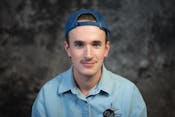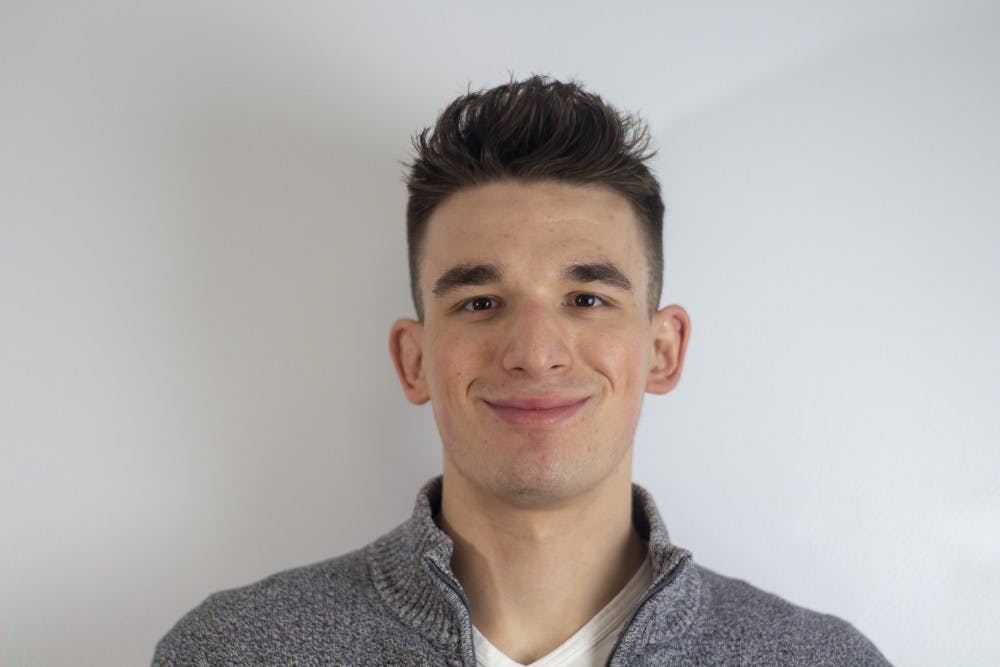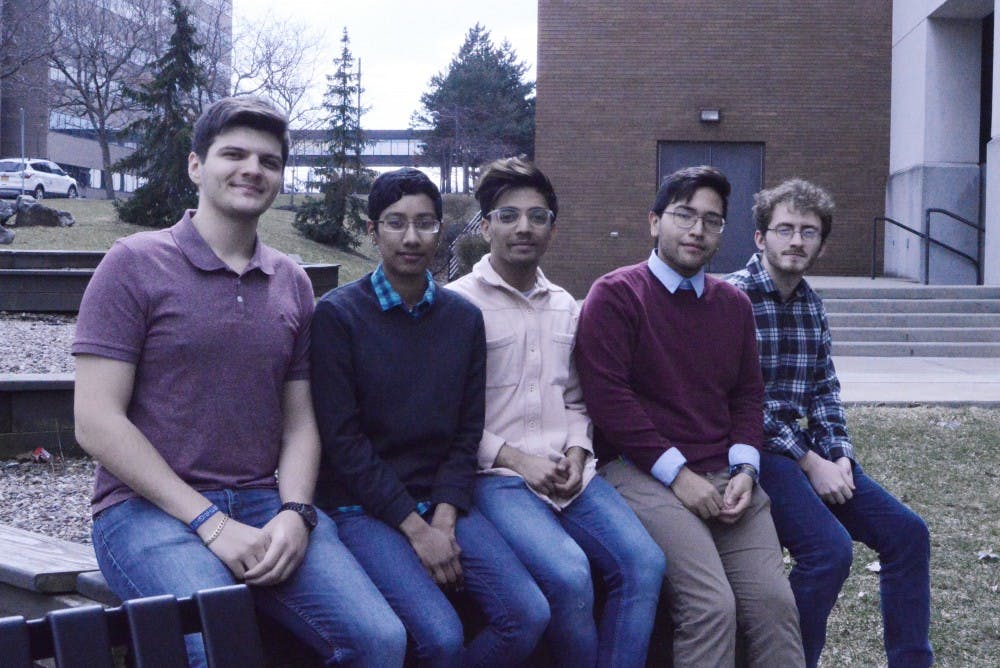The Student Association is not recognizing an LGBTQ STEM club, although club members say they have worked for four years to prove their value.
The club, oSTEM, is recognized by the School of Engineering and Applied Sciences and has 112 chapters at other universities, including Stony Brook.
SA insists the club’s purpose “duplicates” the purpose of LGBTA, founded in 1970, which caters to LGBTQ students.
Students are struggling to understand SA’s decision and insist that, while the clubs overlap in that they cater to LGBTQ students, there are differences in their focuses. The biggest difference is that o-STEM is geared for STEM students and offers professional development-focused meetings and events.
More broadly, oSTEM members think the SA rule will prevent any new LGBTQ clubs from getting recognized. oSTEM members said SA’s logic for rejecting the club was flawed and questioned why SA would hold LGBTQ students to “a different standard.”
“The Black Student Union caters to all black individuals, yet there is a National Society of Black Engineers,” wrote Anton Buynovskiy, the o-STEM vice president and a junior aerospace and mechanical engineering major, in an email. “There’s an Asian American Student Association, yet there is a society of Asian Scientists and Engineers.”
Buynovskiy said if SA “really wanted to follow its strict rules," it would have to disband a number of its interest-focused minority clubs. He said the decision could potentially affect other minority clubs. Most clubs, he said, would think SA should recognize oSTEM.
oSTEM members learned SA would not recognize them in a Friday email from SA Vice President Anyssa Evelyn. In the email, Evelyn wrote o-STEM’s purpose would “directly duplicate” LGBTA’s.
In addition to Evelyn, a prospective club’s council coordinator (in oSTEM’s case, Academic Council coordinator Anthony Taboni) and one of two SA pro-staff members decide if clubs will get recognized by SA, according to the SA club handbook.
Evelyn did not reference oSTEM in her email to The Spectrum on Tuesday. Evelyn also did not comment on oSTEM’s insistence that it differs from LGBTA and its goal to represent LGBTQ STEM majors at UB.
In an email, Evelyn wrote that she was trying to follow the SA rules. SA “CANNOT recognize clubs that duplicate the purpose of an already existing club in any way,” she wrote. SA club rules and regulations state, “no club shall receive recognition of any kind if service(s) and/or purpose of the club are currently being offered in part or in whole by any of the Student Association’s recognized clubs.”
SA President Gunnar Haberl said that the recognition process is solely the vice president’s responsibility. He said he had not been involved in the decision or did not hear any complaints.
“There have not been any student requests [for] a meeting with me to discuss establishing oSTEM within the Student Association,” Haberl said.
The clubs do share similar goals of inclusivity.
LGBTA is “an organization which is sympathetic to” the concerns of LGBTQ students, according to its club constitution. oSTEM’s purpose is to foster a “safe environment for the inclusion of LGBTQ” people in STEM at UB, according to its constitution.
Other schools have not found the overlap a problem. Stony Brook recognized oSTEM this semester and found no conflict with LGBTA, which it also recognizes.
“The missions of the two organizations, while similar, do not duplicate each other, as o-STEM serves a very specific sector within the LGBTQ population,” university spokesperson Lauren Sheprow wrote in an email. “Due to this specification both have been recognized and can co-exist.”
oSTEM members said they’ve been working for SA recognition since 2015. That’s when club founders approached SA and applied for recognition. Priya Persaud, a junior aerospace engineering major and o-STEM member, said SA rejected the club’s request in 2015. Persaud said the club wants more university recognition and the ability to apply for funding.
“So, last semester, we decided that we had enough resources and proof that we were an established club [since 2015],” Persaud said. “We decided it might’ve been a good idea to now take it back to SA and see if we can fight for our case.”
Evelyn, in an email to Buynovskiy on Friday, wrote that oSTEM could contact LGBTA and see if it was willing to allow oSTEM to be an LGBTA subcommittee.
Persaud did not find that comforting, since the club has roughly 30 active members.
More broadly, she worried for the future of additional LGBTQ clubs at UB.
“It could be disappointing for [students] if LGBTA was the only LGBT organization that SA ever allowed,” Persaud said.
LGBTA treasurer and o-STEM member Katherine Mure said she sees no reason why SA couldn’t recognize both clubs. Mure said LGBTA has given her a “home” and helped her grow as a person. Belonging to oSTEM, she said, has helped her develop professional connections and acquire “tools necessary to thrive in the workplace, particularly in a field that is not renowned for its diversity.”
“These clubs could not have accomplished all of this on their own,” Mure said. “It is through cooperation between our organizations and understanding the diversity of its members, even if we belong to the same demographic, that we can truly thrive.”
Persaud said oSTEM members presented a document to SA officials that explained the goals similar to and specific to both clubs. The document oSTEM presented to SA described “organizational redundancies within SA,” including SA-recognized organizations, such as the Black Student Union coexisting with the National Society of Black Engineers and the National Black Law Student Association’s Pre-Law Chapter.
Clubs sometimes do overlap, Buynovskiy said, but a lot of those overlapping clubs still succeed. “Those clubs provide their own demographic to [students], which is what we want to do [with o-STEM].”
Evelyn wrote that she has no control over past SA e-board club approved/denied recognitions.
“SA cannot derecognize clubs that may have similar purposes that were recognized as temporary clubs by past executive boards,” Evelyn wrote. “It is the job of [SA] Senate to recognize and derecognize clubs that have become permanent.”
Evelyn wrote that “it is inappropriate and ignorant for anyone to bring up all of the clubs that have ‘black’ in them and assume they serve the same issues without even looking at any of their club constitutions.”
Gerardo Barrera Giron, a junior environmental engineering major and oSTEM member, said the club "can reach a different demographic that LGBTA can’t.”
“I think just because we’re LGBT doesn’t mean we have the same workplace issues, it [can] depend on what field you fall under and that’s basically what we really want to get people to know,” Giron said.
Persaud said oSTEM means a lot to her members and being an LGBTQ person in STEM is a more “complicated” topic than what could be covered in LGBTA meetings. She said the benefits are “clear” for SA to recognize oSTEM alongside LGBTA.
“Even if they don’t reconsider our application, we just hope that in the future for other clubs that may have this issue, that SA won’t do this and there’s an ability for other LGBT clubs to exist,” Persaud said.
Benjamin Blanchet and Brian Evans are editors and can be reached at arts@ubspectrum.com.

Benjamin Blanchet is the senior engagement editor for The Spectrum. His words have been seen in The Buffalo News (Gusto) and The Sun newspapers of Western New York. Loves cryptoquip and double-doubles.
Brian Evans is a senior English major and The Spectrum's senior arts editor.






